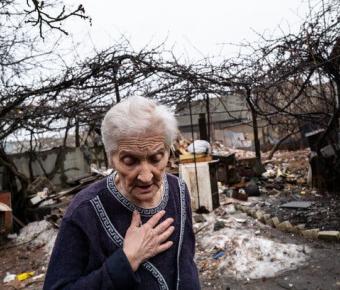Subtle signs of Alzheimer’s disease already present by age 50
By Cameron Scott on April 04, 2022
Alzheimer’s disease affects more than 6 million Americans. Despite years of intensive research, we still lack effective tools to treat this devastating form of dementia. Follow-up prevents repeat ER visits for kids with asthma
By Jess Berthold on March 31, 2022
Follow-up care after an asthma-related visit to the emergency department (ED) may help prevent future ED visits for children, a new study led by UC San Francisco researchers found. Welcome new LEAP K12 scholars
By Cameron Scott on March 28, 2022
We are pleased to announce the appointment of the second cohort of scholars to the Learning Health System Early Career Acceleration Program (LEAP) K12. LEAP supports the career development of scientists at UCSF and affiliate institutions who conduct patient-centered outcomes research within... A call to take online slurs and threats more seriously
By Cameron Scott on March 23, 2022
An article by Hohl et al just published in the American Journal of Public Health builds on the March 2021 study by Yulin Hswen, ScD, showing the rise of racist, anti-Asian hashtags on Twitter in the weeks after former president Trump referred in a tweet to SARS-Cov2 as “the Chinese virus.” Hohl et... Dispatches from the war in Ukraine: radiological dimension
March 14, 2022
Dr. Chumak joined the Department of Epidemiology & Biostatistics from Ukraine to discuss the radiological situation there as it relates to the status of the country’s nuclear reactors. Dr. Chumak has been sending collaborators all over the world updates on the deteriorating situation in Ukraine... Seniors with memory issues take multiple medications, but most are willing to cut down
By Suzanne Leigh on March 10, 2022
Some 58% of seniors with probable or possible dementia had otherwise good to excellent health, yet more than half of the total took six or more regular medications – a habit that may, at best, strain insurance costs and budgets, and at worst may result in adverse drug interactions and poor outcomes... Global work to improve birth outcomes could help reduce racial disparities in the U.S.
By Cameron Scott on March 07, 2022
The maternal mortality rate in the United States exceeds that of any other developed country and it increased significantly in 2020, according to a What you didn’t learn in school about sexual health
By Elizabeth Daube on March 02, 2022
UCSF experts share some tips. Do you need every single one of them? Maybe not. Will you read them anyway? Yeah, probably. In solidarity with Ukraine
February 25, 2022
The UCSF Department of Epidemiology and Biostatistics (DEB), and the Institute for Global Health Sciences (IGHS) stand in solidarity with the Ukrainian people and their struggle against Russia’s aggressive invasion. Updates from former PhD students
By Cameron Scott on February 11, 2022
It adds value to mentoring and apprenticeship experiences if the conversation continues after formal training is over. With that in mind, we asked some PhD alums what they were doing professionally. Their responses highlighted the diverse, meaningful paths junior epidemiologists have open to them... 








